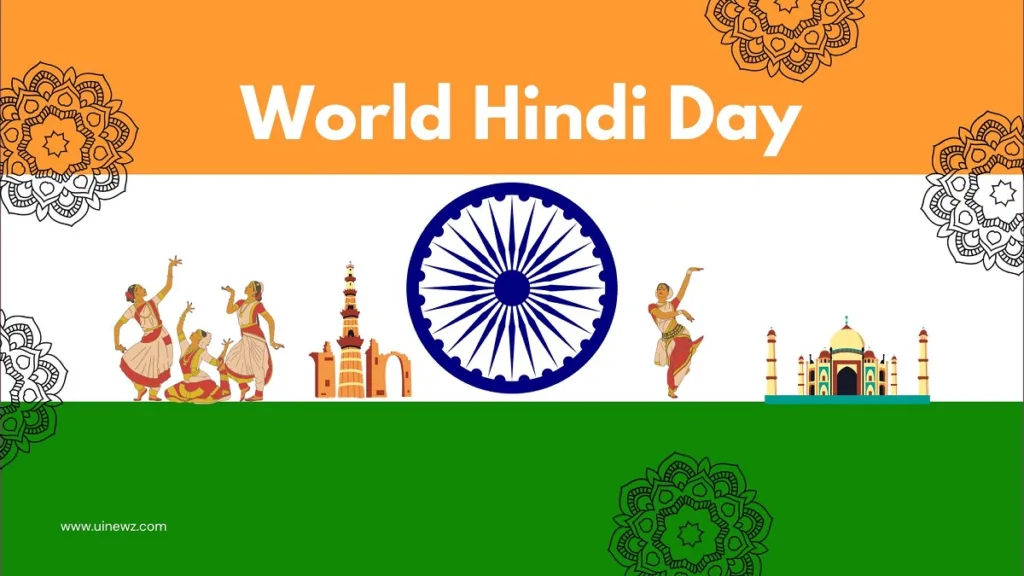Every year on January 10, people across the globe come together to celebrate World Hindi Day, also known as Vishwa Hindi Diwas. This significant day commemorates the historic moment when Hindi was first spoken in the United Nations General Assembly in 1949. As the third most spoken language worldwide, after English and Mandarin Chinese, Hindi holds immense cultural and linguistic importance not only in India but also globally.
Table of Contents
Historical Significance
The roots of World Hindi Day trace back to the adoption of Hindi as the official language of the Union of India in 1950. The language found its way into the international stage on January 10, 1949, marking a pivotal moment in its journey. Recognizing the need for global acknowledgment, the ‘World Hindi Conference’ was initiated in 1975, emphasizing the promotion of Hindi in foreign countries. The inaugural conference, held in Nagpur, witnessed participation from 122 representatives across 30 nations.
Celebration and Recognition
World Hindi Day is celebrated with zeal and enthusiasm by the Ministry of External Affairs, spearheading events and activities to promote the language. These initiatives extend beyond borders, embracing Hindi speakers and enthusiasts worldwide.
Various events, including speech competitions, language classes, and cultural programs, take place to highlight the rich heritage of the language. The celebration is not confined to official institutions; schools, colleges, and government offices actively participate, organizing special events such as quiz competitions and lectures.
World Hindi Day Vs Hindi Diwas
It is crucial to distinguish between World Hindi Day and Hindi Diwas. While World Hindi Day focuses on the global promotion of the language, Hindi Diwas, celebrated on September 14 annually, specifically recognizes and promotes Hindi within India. Both occasions, however, share the common goal of fostering a love for the language and acknowledging its contributions to literature, culture, and national identity.
Vishwa Hindi Diwas 2024 Theme
Each year, World Hindi Day adopts a unique theme to guide its celebrations. In 2024, the theme is “Hindi–Bridging Traditional Knowledge and Artificial Intelligence.” This theme underscores the dynamic role Hindi plays in connecting traditional wisdom with the advancements of the modern world, emphasizing its adaptability and relevance in today’s global landscape.
Importance of World Hindi Day
World Hindi Day serves as a platform to honor the contributions of Hindi speakers, raise awareness about the language, and educate people on its significance. As a language deeply rooted in Indian culture, history, and literature, Hindi plays a crucial role in upholding the values of the nation. Recognizing the challenges faced in its usage and promotion, World Hindi Day encourages a collective effort to overcome these obstacles.
Oxford Dictionary’s Hindi Inclusion
The significance of Hindi extends beyond spoken conversations. Notably, several Hindi words have made their way into the Oxford Dictionary, further solidifying its global influence. Words like ‘jhuggi,’ ‘nivas,’ ‘natak,’ and ‘accha’ are now recognized internationally, reflecting the richness and diversity of the language.
Messages and Wishes for World Hindi Day
As World Hindi Day approaches, messages and wishes flood social platforms, encouraging people to embrace their cultural identity through the language.
- Happy World Hindi Day! May the beauty and richness of the Hindi language continue to inspire and connect people across the globe. Let’s celebrate our linguistic diversity and heritage with pride.
- Wishing everyone a joyous World Hindi Day! May this occasion serve as a reminder to cherish the cultural significance of the Hindi language. Let’s unite in promoting and preserving the essence of Hindi in our lives.
- On World Hindi Day, let’s extend heartfelt wishes to all Hindi speakers. May the language flourish, evolve, and bridge traditional knowledge with the innovations of the modern era. Happy Vishwa Hindi Diwas!
- Happy Hindi Diwas! Let’s celebrate the power of language to bridge gaps and unite hearts. May Hindi continue to thrive as a symbol of unity and diversity.
- On Vishwa Hindi Diwas, let’s renew our commitment to preserving and promoting the Hindi language. May it serve as a source of pride and identity for generations to come.
- Happy World Hindi Day! May the linguistic heritage of Hindi resonate in every corner of the world, fostering understanding, harmony, and a shared cultural tapestry.
In conclusion, World Hindi Day stands as a testament to the global impact of the Hindi language. Beyond its role as an official language in India, it serves as a bridge between traditional knowledge and the advancements of the digital age. As we celebrate this day, let us reflect on the richness of Hindi, its historical significance, and its continuous evolution in an ever-changing world. By embracing Hindi, we contribute to the preservation and celebration of a language that has left an indelible mark on the cultural tapestry of the world.

